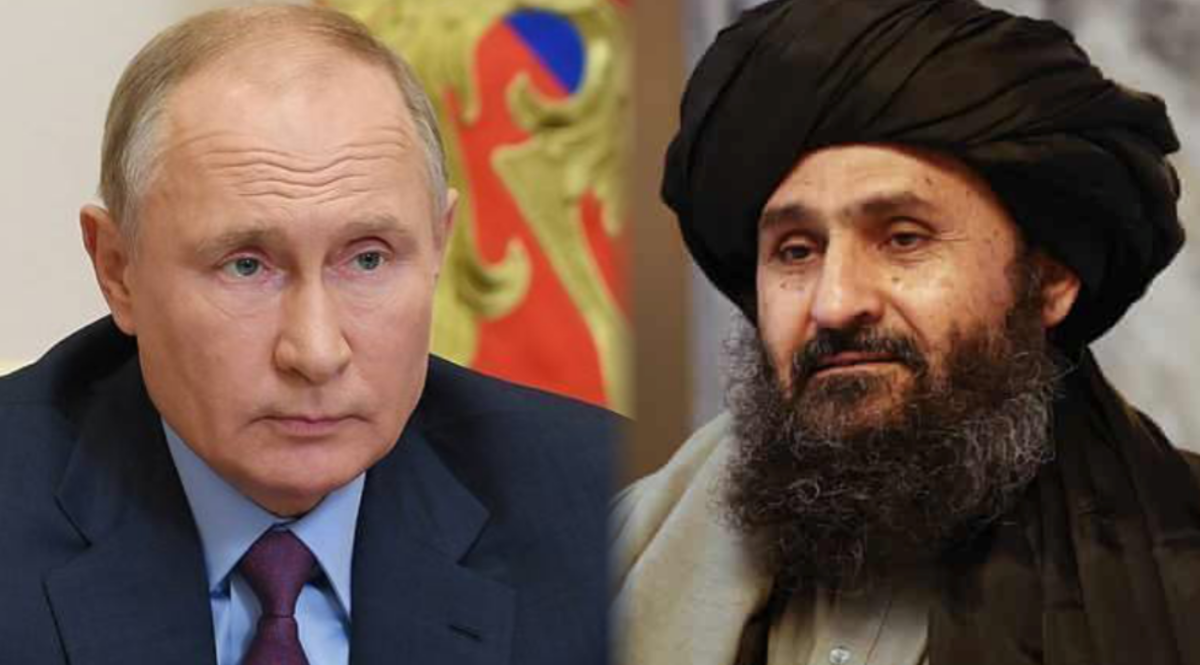Table of Contents
During the Saint Petersburg International Economic Forum, Russian President Vladimir Putin urged for an enhancement of Moscow’s relations with the Taliban government. Notably, a delegation from the Taliban was in attendance during the Wednesday forum. Putin stressed the necessity of engaging with Afghanistan’s existing power dynamics and adapting to the current political landscape.
Putin emphasized the importance of acknowledging the Taliban’s control for practical international relations. He highlighted that given the Taliban’s governance in Afghanistan, it is imperative for Russia to establish a functional relationship with them. Putin argued that this approach aligns with Russia’s historical practice of engaging with de facto authorities, regardless of past conflicts or ideological differences.
A Shift in Diplomatic Strategy
Russian Foreign Minister Sergei Lavrov echoed Putin’s views, suggesting that Moscow may consider removing the Taliban from its list of recognized terrorist groups, a designation held since 2003. Lavrov stressed the Taliban’s current authority in Afghanistan, indicating a potential change in Russian diplomatic tactics. This stance had been previously hinted at by Lavrov during Putin’s visit to Uzbekistan, indicating a potential change in policy.
However, it’s important to note that delisting the Taliban doesn’t mean formal recognition of their government, known as the “Islamic Emirate of Afghanistan.” This nuanced approach reflects Russia’s careful yet strategic engagement with the Taliban, seeking to strengthen ties without fully endorsing their rule.
Historical Context of Russia-Afghanistan Relations
The connection between Russia and Afghanistan is complex, molded by a turbulent history. The Soviet Union’s decade-long involvement in Afghanistan’s conflict during the 1980s aimed to bolster a Kremlin-supported government, ultimately ending in a costly withdrawal and leaving profound scars on both nations. Despite this tumult, Russia has maintained ties with various Afghan factions over time, including the Taliban.
In 2018, allegations emerged from U.S. military officials, accusing Moscow of supplying weapons to the Taliban, a claim Russia staunchly denied. These accusations highlighted the complex nature of international involvement in Afghanistan. Putin’s current stance seems to align with Russia’s long standing policy of engaging with all significant regional players to preserve influence and promote stability.
Potential Impact on Global Politics
Russia’s increased involvement with the Taliban has the potential to greatly influence global politics. By positioning itself as a significant player in Afghanistan, Russia’s actions may impact how other countries interact with the Taliban. The international community holds divergent views on how to engage with the Taliban, given their contentious human rights history and rigid adherence to Islamic law.
Analysts propose that Russia’s engagement could prompt other nations to reassess their positions, potentially resulting in a more disjointed international approach. This situation could offer the Taliban opportunities to gain legitimacy and assistance from different quarters, adding further complexity to the geopolitical environment.
Women’s Rights Under Taliban Rule
The treatment of women under Taliban rule is a highly debated issue. Upon seizing power, the Taliban implemented strict limitations on women’s rights, essentially excluding them from public activities and enforcing a stringent interpretation of Islamic law. This stance has been heavily criticized by numerous international human rights groups and governments worldwide.
Russia’s move to establish connections with the Taliban will inevitably come under scrutiny, particularly regarding human rights, including those of women. The global community will closely monitor Russia’s approach in managing this relationship, weighing diplomatic engagement against the advocacy for fundamental rights.
Conclusion
As Russia aims to enhance its relationship with the Taliban government, the international community is observing attentively. This strategy represents a practical approach to foreign relations, recognizing the Taliban’s authority without granting formal recognition. This policy shift carries significant implications for global diplomacy, regional stability, and human rights in Afghanistan. Navigating this complex situation, Putin and his administration will need to balance pragmatic and ethical considerations, which will be crucial in shaping the future of Russia-Afghanistan relations.

1 Comment
Pingback: 27th St. Petersburg International Economic Forum starts off with an emphasis on Partnership between China and Russia - INPAC Times 27th St. Petersburg International Economic Forum(SPIEF) starts off with an emphasis on Partnership between China and Russi